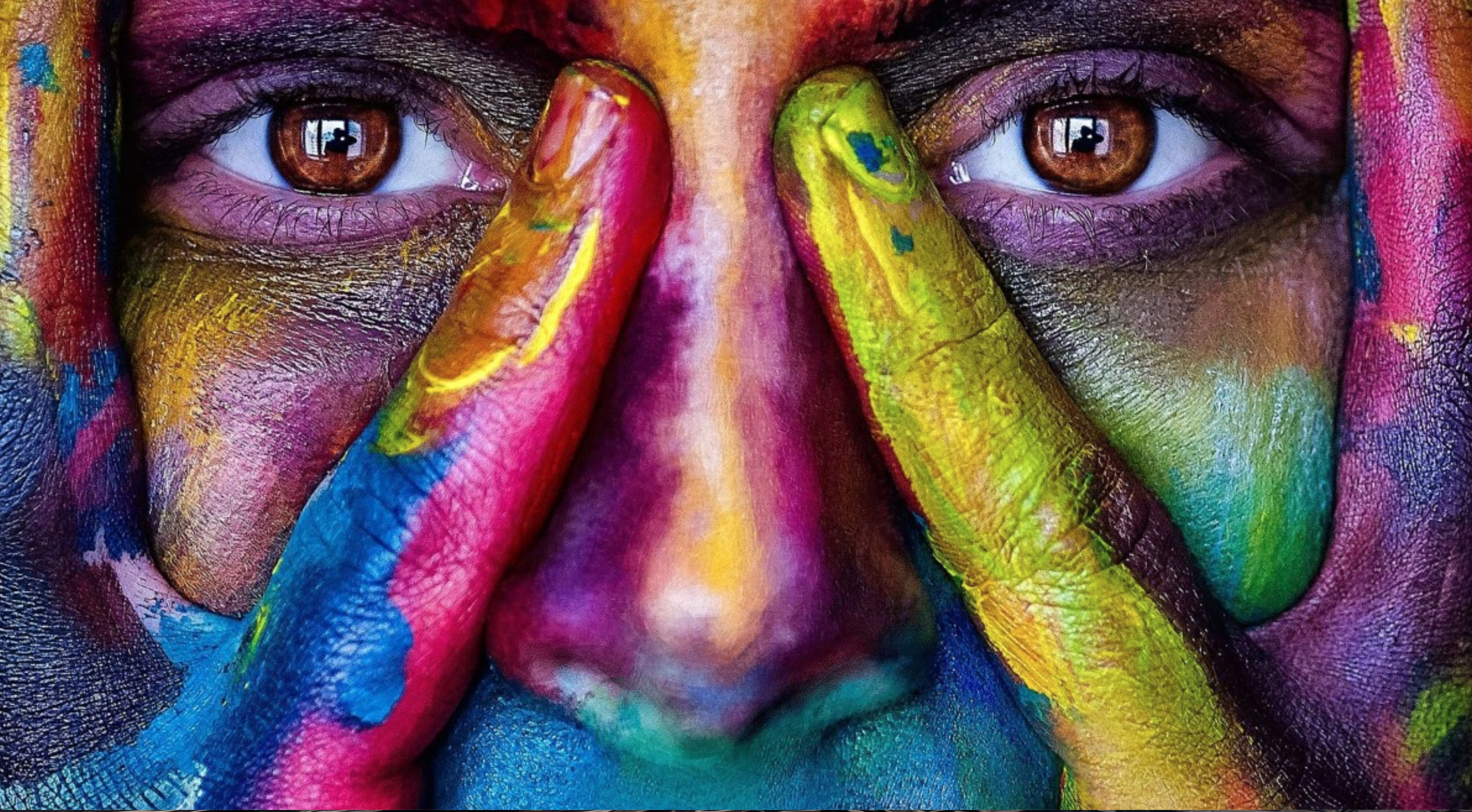Recognizing and Changing Culture
In the last two decades the conversation about ‘culture’ is ubiquitous in the corporate world.
Especially the ‘need’ to ‘change the culture’ as a solution to most of our big problems.
But what is culture? How do we even know what the current culture is? How can we recognize it? How am I ‘part of’ or ‘different from’ the current culture?
Image credit: Stencil
As we grow up, we discover our personality through the interaction with others – through how others respond back to us – through our differences. We discover ourselves in relation with the other.
I grew up in Salzburg, Austria. Never did I fully realize what was unique about ‘being from Salzburg’ until I moved to Vienna for my studies and connected with ‘fellow friends from Salzburg’, a group that had a recognizably different energy than colleagues from other regions of Austria. When I moved to the Netherlands a few years later I learned what it meant to be ‘from Austria’. And only once I moved to the US, did I realize that I am ‘a European’ and what that actually meant.
I noticed that I could only perceive certain aspects of my personality, my preferences, my heritage – my culture – once I stepped out of a certain environment which I was an integral part of until then.
Only through the difference around me, could I see myself differently than before.
I grew up Catholic and thought I understood what that meant, yet only when I travelled to India after finishing university to study Vedic texts and experience a completely different belief system (Hinduism) did I realize what Christianity actually meant to me and how deeply it had become part of who I was.
So, we need ‘the other’ – that which is different – to actually get to know ourselves and to expand our own perspective.
We long for the familiar – that which is the same – so we feel like we belong.
We long for safety through comfort and for growth which requires the uncomfortable.
In companies we have action plans to increase diversity and yet we strive for a unified culture. Is that a contradiction?
Does a fish know what water is?
Does fire know what it feels like to be hot?
Do we fully realize what it means to breathe air?
When the first astronauts went on this exciting adventure to land on and discover the moon, many of them returned and reported that the most mind-opening experience actually was on their way back: looking at the earth!
A beautiful blue marble – floating peacefully in space …
For the first time – through their images – could we look at ourselves from the outside.
We could see the larger ‘us’, a perspective which before was simply not available to us.
In systems theory one of the main insights is, that we can only see and understand the system which we are an integral part of, once we change it. And that always means changing ourselves.
If that is the case, then what do we actually perceive when we look at the world around us?
Many psychologists have told us that we don’t see the world as it is, but we see it as we are.
Recognizing the power of our own projections is a continuous adventure of discovery – and it usually is a painful one – as we can best notice in our closest relationships…
It is a journey which leads us to humility.
In a similar way as couples argue about how ‘the other’ should change, in corporations we often notice the CEO (and their MT) passionately argue what ‘should change in the culture of this organization’ while the people within the organization have their own -equally passionate- views on how the CEO and the Executive Team should change…
This is all very human and natural as it keeps us safely at a distance from painfully looking at ourselves. It protects us from realizing how we always attract and co-create the environment we find ourselves in. It prevents us to fully become aware of to what extent we are the culture we live in.
We all know that we only get emotionally triggered by something that actually resonates within us. When someone tells me that I am mean, it doesn’t really get me off balance, as I consider myself a fairly kind person. If someone however accuses me of acting like a coward, it lands right in my guts, as sometimes I wonder, if I am actually daring to be courageous enough in my life.
No one can reject in us, what we haven’t already rejected within ourselves first.
(Wilbert Alix)
Therefore, if we are truly serious about changing our culture, a good rule of thumb would be, that whenever we feel triggered by someone, we stop, we don’t react, we reflect what quality really triggered us and we find a way how we can improve that exact quality within ourselves in the hope of becoming a role model to others, who may feel inspired to follow our example.
If we all do that one thing – our organization will change, our relationships will improve, and we will become one small step more whole as a human being.




Beautifully written, Claus.
I love this! Resonates entirely, adds insight for me, understandable and well said. Thank you for sharing.
Very insightful article
Great reading to share with our team members, stop, reflect, think and continue growing.
Can’t agree more! We want to ‘be ourself’, also ‘a better version of ourself’, then we shall take the different perspective to improve ourselves, therefore influencing the people around us. Thanks for sharing, Claus!
Thanks for this Claus. I agree and I also think we can’t truly start to accept the other until we learn to accept ourselves.
Love the connect of systems theory and personal journey and then going to the organization, makes it REAL in life. Heartfelt thank you for the learnings Claus.
Super Claus, find’ ich sehr inspirierend, was du schreibst!
Wonderfully written piece. I can only agree with what you describe. Thank you for sharing. Be well ❤️
Indeed, it is in ‘otherness’ that we see ourselves. Very insightful piece Claus! Thank you